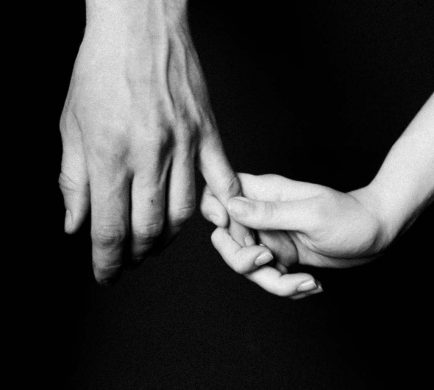In Buddhism, faith refers to a serene commitment to the practice of the Buddha’s teaching and trust in enlightened, highly developed beings. Faith also may not only be devotion to a person but can exist in relation to concepts like karma and the possibility of enlightenment—an awakening to the true nature of reality.
Faith in early Buddhism focused on teaching and seeking wisdom and enlightenment. A faithful devotee was called an upāsaka or upāsika, a status for which no formal initiation was required. As important as faith was, it was merely a first step on the path to this wisdom and enlightenment. Faith was given a much more important role in the later years of Buddhist history. Buddhists defined faith as a state similar to enlightenment, with a sense of propriety and humility.
In Pali, the language of the original Buddhist texts, the word for faith is saddha. While sometimes translated as “confidence” or “trust,” the literal meaning of saddha is “to place your heart upon.” According to the Pali, giving our hearts over to spiritual practice is a sign of faith or confidence in the practice of faith.
Practicing faith opens us to concepts beyond our usual, limited, self-centered concerns. In Buddhist psychology, it is considered the gateway to all good things because faith sparks our initial inspiration to practice meditation, a mindfulness practice. It also sustains our ongoing efforts in this practice.
The concept of faith can be difficult for some. The concept of faith is sometimes associated with mindless beliefs, or it may imply the need to proclaim allegiance to a specific train of thought, and their fear may be associated with being judged for a degree of compliance with these specific thoughts.
To have faith does not mean to have rigid beliefs in something and then be defensive about opening up to new ideas. It doesn’t mean using the knowledge or concept we have faith in as a way of feeling separate from or superior to others. When talking about saddha and the “place the heart upon” concept, this concept is about the possibility of our awakening.
We experience faith on many spiritual levels. In a Buddhist text entitled “The Questions of King Milinda,” a monk named Nagasena uses a parable to illustrate these levels. The parable states that a group of people gathered on the edge of a flooding stream want to go to the far shore but are afraid. They don’t know what to do until one wise person comes along, assesses the situation, takes a running leap, and jumps to the other side. Seeing the example of that person, the others say, “Yes, it can be done.” Then they also jump. In this story, the near shore is a confused condition, and the far shore is the awakened mind. Inspired by witnessing another person overcoming a problem, we say, “Yes, it can be done.” That is one level of faith. After we have jumped ourselves, we can say, “Yes, it can be done,” that is quite another level of faith. One is a thought, the other a practice.
The opposite of faith is doubt. There are many sides to doubt. There is a kind of doubt that is very positive. It is an edge of investigation that says, “I’m not going to accept this just because somebody else says it’s so. I really want to know these things more truthfully by my own investigations.” And this is the cutting edge of wisdom, the voice that says, “I want to know for myself, not just because you say so.”
Faith has the quality of allowing us to open, draw near, and to go forth and harness our energy to pursue a goal or an aspiration. But faith has to be carefully balanced with wisdom. If we have too much faith without enough wisdom, then it becomes what we ordinarily call “blind faith.” Human beings can be very gullible. With blind faith, we can hear somebody and their impressions of life. This can move us and make our hearts sing, and we can then experience an extraordinary feeling of inspiration.
But the next day, we can hear somebody else say a different thing, and we can feel inspired by them. This is mere belief—faith without enough wisdom.
Belief and faith often go together. They are not mutually exclusive as we can believe in something and also have faith in it. Belief can refer to something more in the realm of an idea about things. It can be something that we have never really examined, and therefore we don’t have the quality of faith in it that comes from seeing for ourselves that it is true. It’s more than just an idea that we have. Beliefs are often these assumptions that we have about so many things that are really fabrications of the mind, not based on an actual event or the personal experience of things.
Faith is a spiritual force, but it is not an isolated spiritual force. That means faith was never meant to work by itself. It must work in conjunction with other spiritual forces.
The natural and the spiritual must also function together. That is, our trifecta—body, mind, and spirit—must work together. In the human body, all of the bodily systems must function properly and work together. Even though systems such as the respiratory and digestive systems, and so on—are different and operate separately, they must also operate together in harmony to allow the body to function properl.
That’s the way faith is. It’s not an isolated force that operates alone. Faith functions in harmony with the other spiritual forces that are set into motion, such as love, hope, patience, and prayer.
No matter what religion or what “faith” is in play for each of us, we must strive to “place our heart upon” something of meaning, something that is true to us, or something we believe in. The meaning of faith can vary for each individual, depending on what we put our hearts upon or the quality with which we give our hearts. We must take a step back from our conditioning, from our past, and from our belief systems and then step forward to take a profound look within ourselves in order to allow the truth to speak to us in order to present whatever might be revealed through our own experiences. Be willing to be open, be willing to explore, be willing to investigate. Work with the systems that are true to you and have faith.
In Buddhism, faith does not have God as the object or foundation of trust. It does not require belief in a personal God, as in Christianity. Faith, as trust, is not self-generated but arises out of the circumstances of one’s life like the sun brings light into a dark world. Trust is the experience of the whole person and arises naturally as a dawning, a eureka experience, of the true nature of human existence, that we all depend on family, community, and nature, which support and enable our life process.
Consequently, Christians and Buddhists can use the common English word faith to discuss their religion’s basis. However, it is clear that the foundation of their faith understanding differs within the respective traditions. Faith in Christianity is not identical conceptually to faith in Buddhism. Nevertheless, the terms may be used in common in our struggle to facilitate understanding through explanation and clarification. It is here that dialogue becomes important to clarify the spirituality of each faith.
We should note here that Christianity and Buddhism have different definitions of belief and trust.
Belief is an intellectual action directed at a specific object, as to whether it exists or not or is what people think it is. Belief deals with what has yet to be completely known. So, we have beliefs to fill the gap. As knowledge grows, a belief transforms into fact or knowledge. People believed that the earth was flat until it was shown to be round. A belief can be disproved by further knowledge. Beliefs play a significant role in all religions but are not to be identified with faith.
Faith involves a transformation of one’s approach to life and one’s awareness of the truth of one’s life. Faith awakens us to our deep obligation to life while energizing our commitment to the welfare of others as the foundation for living. Faith, even when the root is different, is more holistic, involving the whole person, while belief is simply mental assent to the factuality or accuracy of a given proposition.
When we explore the meaning of faith in Christianity and Buddhism, we discover that they both speak to the whole person in order to arouse commitment to promote the welfare of all beings. At the same time, they reflect different understandings of the basis for that faith. We may use the term faith, but it is necessary that we clarify its various implications to achieve a greater understanding. He who has faith has a reservoir of courage, hope, confidence, calmness, and assurance that everything will be okay.
By Nikki Pattillo







